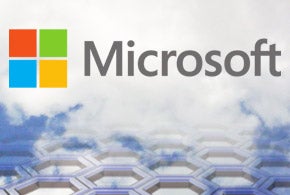With Windows Server 2016 becoming generally available later this month, Microsoft needs to help channel partners convince small and midsize businesses that it’s time to upgrade their server operating systems or move to the cloud.
A recent survey conducted by Spiceworks highlights the extent of the challenge. Only 20 percent of IT pros surveyed say they will upgrade to Windows Server 2016 before the end of next year. The most widely used version of Windows Server is the 2008 release, but that version of Windows Server doesn’t achieve end-of-life status until 2020, the research shows.
In the meantime, there are still many instances of Windows Server 2012 out there along with a sizable number of Windows Server 2003 instances that Microsoft no longer supports.
To better court laggard small and midsize businesses (SMBs), Microsoft is counting on partners of Dell EMC, Hewlett Packard Enterprise and Lenovo to go after customers that have fewer than 500 users.
As part of that effort, Lenovo, for example, has extended its alliance with Microsoft to cover a much broader set of server and storage offerings optimized for Windows Server 2016.
“There will be a lot of education focus on Windows Server 2016 starting next week,” said Rich Brown, director of the Microsoft alliance for Lenovo.
Lenovo will also make it possible for IT organizations to acquire servers that can be downgraded to Windows Server 2012 and then upgraded later on to Windows Server 2016 at no cost, Brown said.
Meanwhile, Dell EMC has extended the reach of its servers running Windows Server 2016 into the Microsoft Azure cloud.
It’s critical for Dell EMC to be seen as the best option for integration with Microsoft Azure cloud at a time when many IT organizations are just beginning to evaluate hybrid clouds spanning Windows Server 2016 and Azure, said Jim Ganthier, senior vice president for the Validated Solutions Organization in the Dell EMC Converged Platforms Solution Division.
“When it comes to Azure, we’re substantially differentiated than any of our competitors,” said Ganthier.
Yet the issues facing Microsoft and its partners go well beyond simply trying to get customers to upgrade. SMBs these days are actively considering other options, such as Google Apps, said Diane Krakora, CEO of PartnerPath, a consulting firm that specializes in channel management. “SMBs are now a real risk for Microsoft,” Krakora said.
Regardless of how competition in the SMB sector ultimately plays out, Microsoft or its rivals will not get very far without receiving substantial help, one way or another, from the channel.
Mike Vizard has covered IT for more than 25 years, and has edited or contributed to a number of tech publications, including InfoWorld, CRN and eWEEK. He currently blogs daily for IT Business Edge and contributes to CIOinsight, Channel Insider and Baseline.

